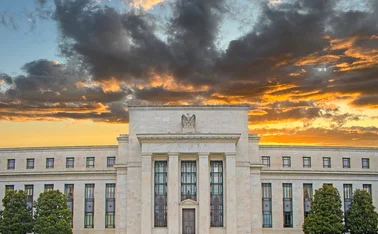
Blanchard leads calls for more ‘democratic input’ in central bank decision-making

Olivier Blanchard, the International Monetary Fund's chief economist, has called for changes to central bank decision-making, to allow a degree of "democratic input" where policies will have a significant redistributive effect.
Blanchard was joined in a panel discussion at the Deutsche Bundesbank by Viral Acharya, a professor of economics at NYU Stern; Richard Fisher, the president of the Dallas Federal Reserve; Otmar Issing, a former member of the board of the European Central Bank; and Klaas
Only users who have a paid subscription or are part of a corporate subscription are able to print or copy content.
To access these options, along with all other subscription benefits, please contact info@centralbanking.com or view our subscription options here: subscriptions.centralbanking.com/subscribe
You are currently unable to print this content. Please contact info@centralbanking.com to find out more.
You are currently unable to copy this content. Please contact info@centralbanking.com to find out more.
Copyright Infopro Digital Limited. All rights reserved.
As outlined in our terms and conditions, https://www.infopro-digital.com/terms-and-conditions/subscriptions/ (point 2.4), printing is limited to a single copy.
If you would like to purchase additional rights please email info@centralbanking.com test test test
Copyright Infopro Digital Limited. All rights reserved.
You may share this content using our article tools. As outlined in our terms and conditions, https://www.infopro-digital.com/terms-and-conditions/subscriptions/ (clause 2.4), an Authorised User may only make one copy of the materials for their own personal use. You must also comply with the restrictions in clause 2.5.
If you would like to purchase additional rights please email info@centralbanking.com test test test







